Dancing through disability
A pioneering Brazilian school teaches ballet to the blind, deaf, and handicapped

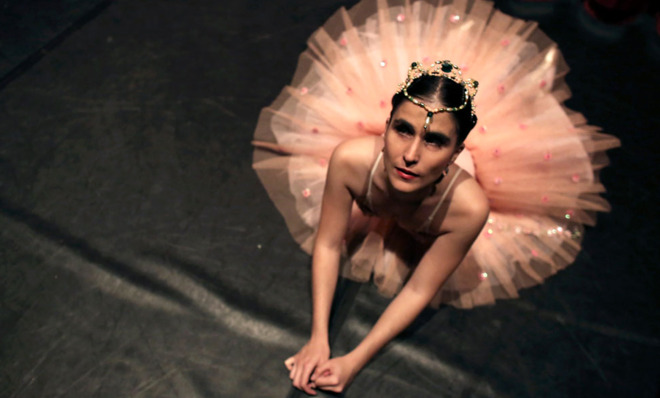
A free daily email with the biggest news stories of the day – and the best features from TheWeek.com
You are now subscribed
Your newsletter sign-up was successful
In many ways, Fernanda Bianchini's ballet school in São Paulo, Brazil, is like any other. Students sport leotards, slippers, and that slicked-back signature bun as they file in for classes. When it comes time for performances, the dancers appear as polished as any seasoned Sugar Plum Fairy.
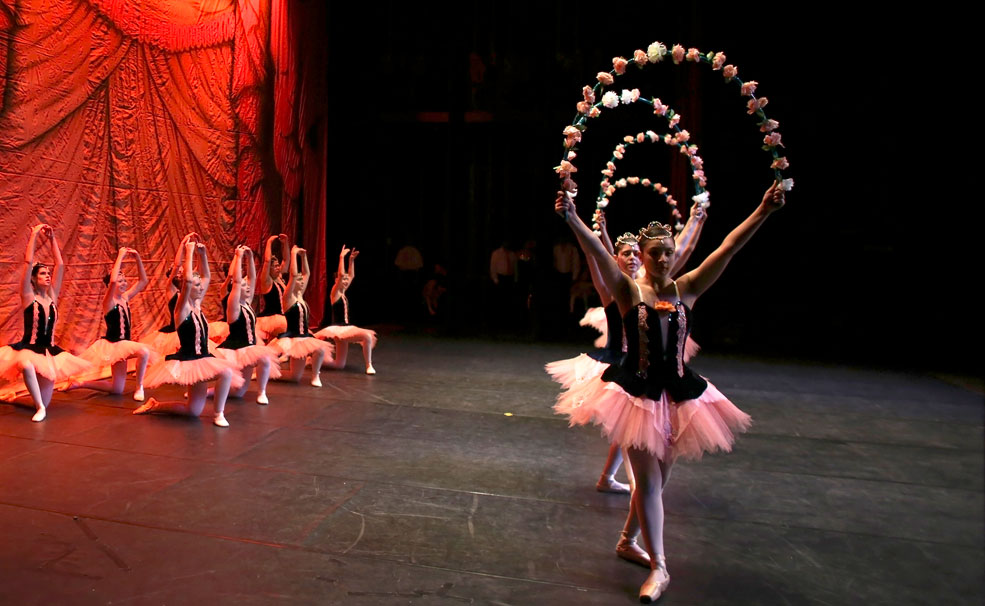
Students dance the 'Corsario' e 'Paquitas' at the Italo Theater. | (REUTERS/Nacho Doce)
But Bianchini's students are different than other dancers aspiring to grace the most renowned stages in the world. All of them are blind, deaf, mute, or handicapped in some other way.
The Week
Escape your echo chamber. Get the facts behind the news, plus analysis from multiple perspectives.

Sign up for The Week's Free Newsletters
From our morning news briefing to a weekly Good News Newsletter, get the best of The Week delivered directly to your inbox.
From our morning news briefing to a weekly Good News Newsletter, get the best of The Week delivered directly to your inbox.
How does one teach a child who has never seen an arabesque or a plié to mimic the moves? How does one help a deaf child keep time to the music? Those are the questions Bianchini's Association of Ballet and Arts for the Blind has answered. Blind students, for example, put a hand to their instructors' arms or legs as they are led through dance positions — and eventually routines — so they can feel out the proper movements.
Bianchini, herself a former professional ballerina and now a physiotherapist, helps the students improve their posture, balance, and spatial sense through the weekly lessons, all of which are free. But more than that perfect poise, the students gain self-esteem, Bianchini says, and they break down people's perceptions of what it means to be "disabled" — one dance at a time.
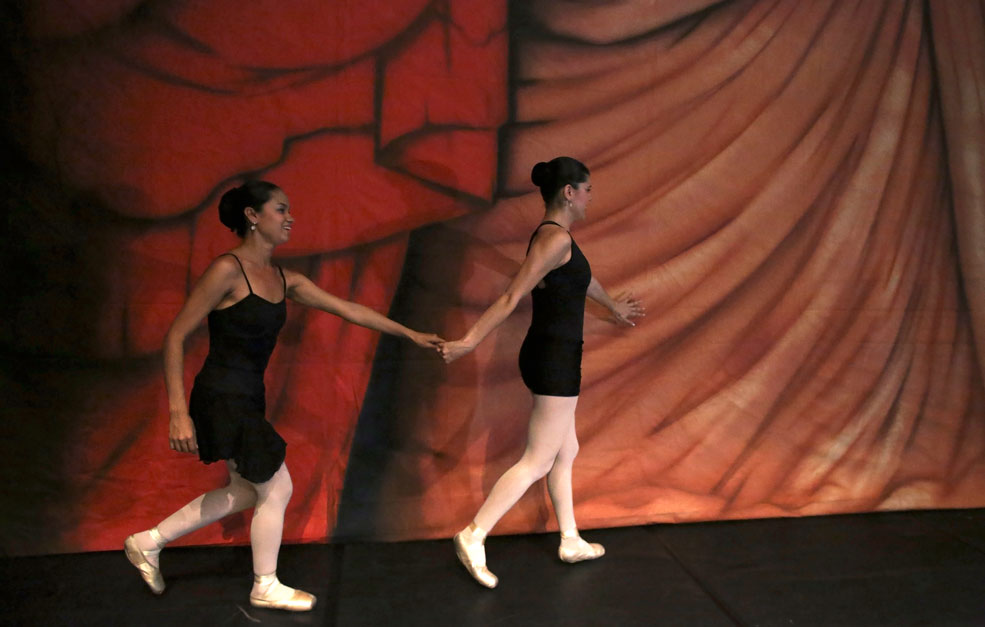
Italo Theater: Blind students Aldenir and Aldenice walk toward the stage. | (REUTERS/Nacho Doce)
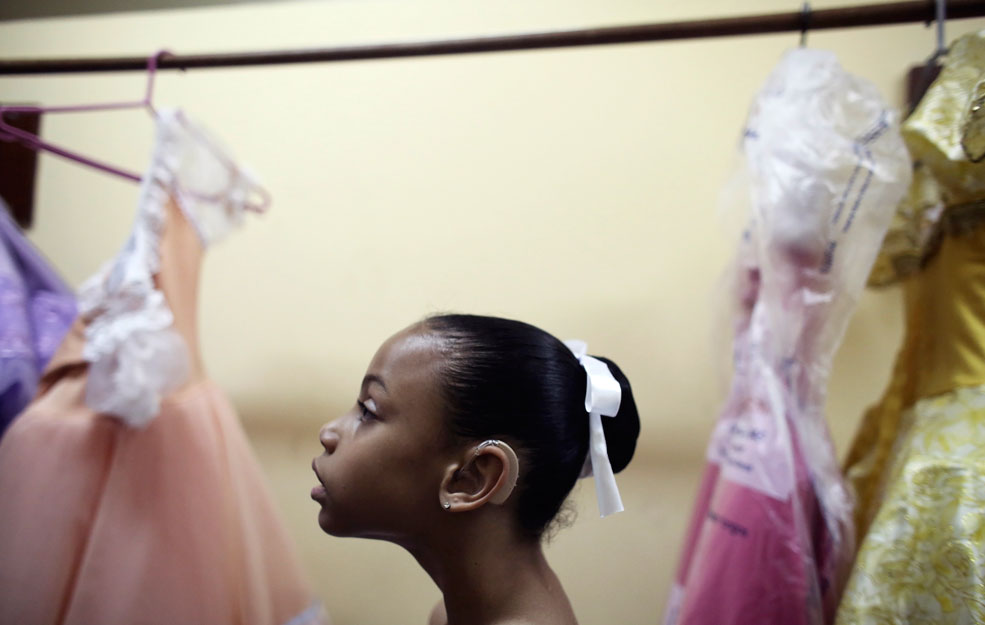
Italo Theater: Deaf student Vivian stands backstage. | (REUTERS/Nacho Doce)
A free daily email with the biggest news stories of the day – and the best features from TheWeek.com
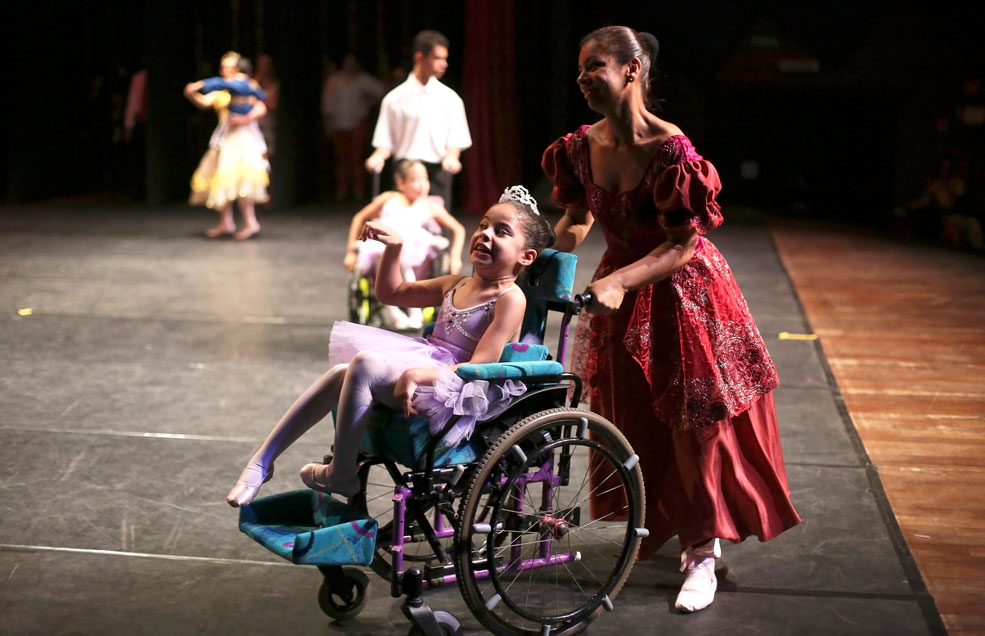
Italo Theater: Handicapped dancers perform 'Corsario' e 'Paquitas.' | (REUTERS/Nacho Doce)
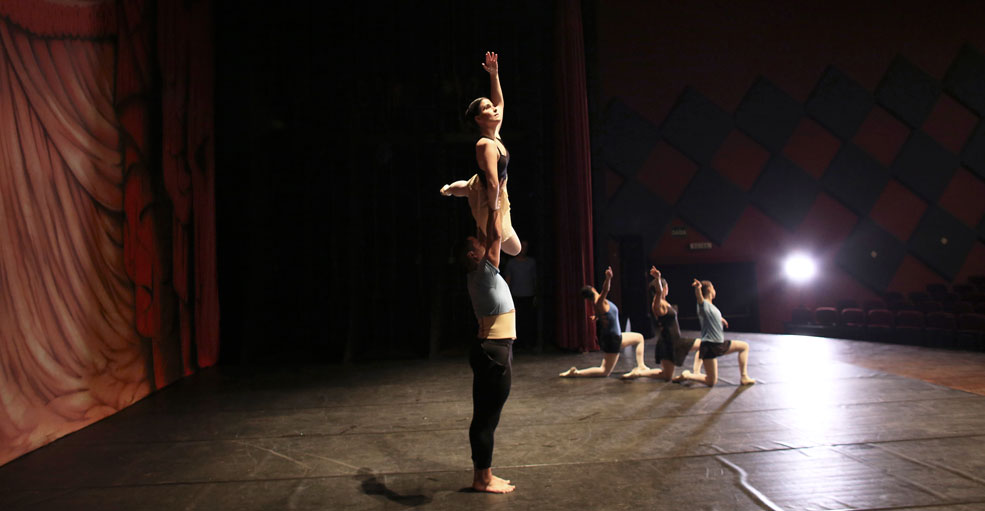
Italo Theater: Blind student Marina Gimaraes (top) and fellow dancers practice a routine. | (REUTERS/Nacho Doce)
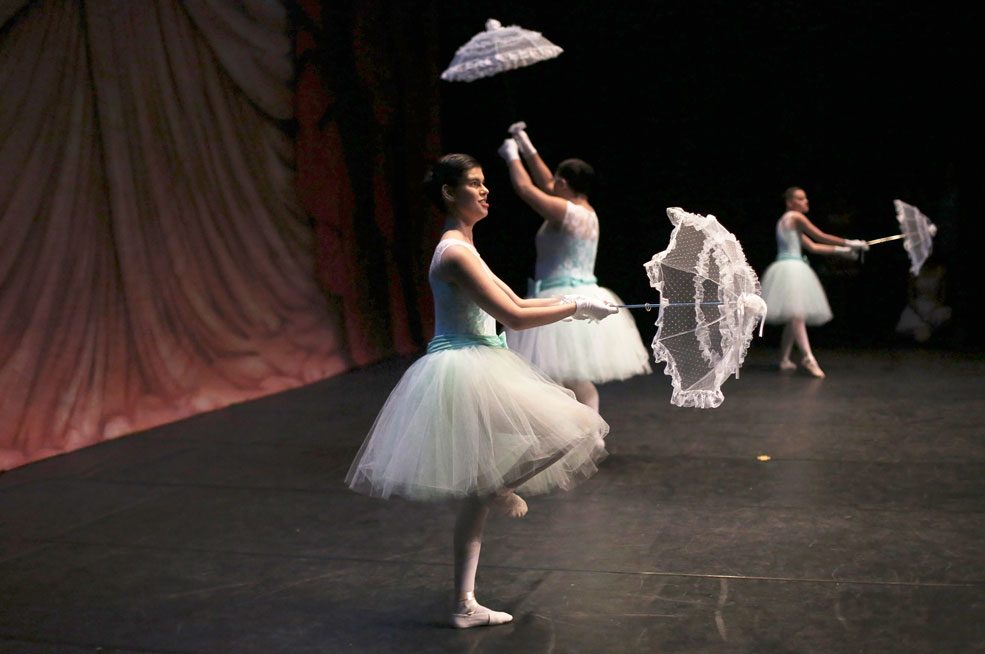
Italo Theater: Blind students Giovanna, Cintia, and Talita perform 'Corsario' e 'Paquitas.' | (REUTERS/Nacho Doce)
Sarah Eberspacher is an associate editor at TheWeek.com. She has previously worked as a sports reporter at The Livingston County Daily Press & Argus and The Arizona Republic. She graduated from Northwestern University's Medill School of Journalism.
-
 Why is Prince William in Saudi Arabia?
Why is Prince William in Saudi Arabia?Today’s Big Question Government requested royal visit to boost trade and ties with Middle East powerhouse, but critics balk at kingdom’s human rights record
-
 Wuthering Heights: ‘wildly fun’ reinvention of the classic novel lacks depth
Wuthering Heights: ‘wildly fun’ reinvention of the classic novel lacks depthTalking Point Emerald Fennell splits the critics with her sizzling spin on Emily Brontë’s gothic tale
-
 Why the Bangladesh election is one to watch
Why the Bangladesh election is one to watchThe Explainer Opposition party has claimed the void left by Sheikh Hasina’s Awami League but Islamist party could yet have a say
